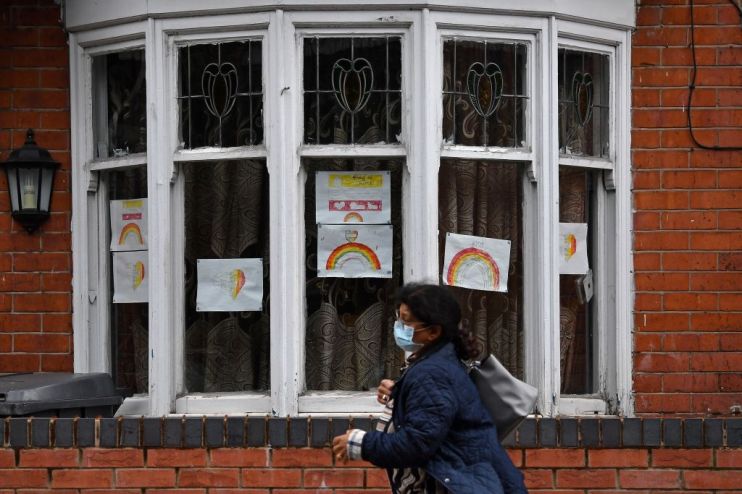Covid-19 shone a spotlight on hidden abuse — now we cannot afford to stop fighting

The Covid-19 crisis has thrown the issue of domestic abuse into sharp focus.
The sudden shift to working from home as offices closed meant that many victims were unable to access what is often their only safe space: the workplace. With those at risk suddenly forced to remain at home with their abusers during lockdown, calls to the National Domestic Abuse Helpline, run by Refuge, and visits to its website have risen exponentially.
The suffering of victims during lockdown must not be underestimated. But the malign effects of the virus on the level of domestic abuse have had one constructive consequence: they have raised the public awareness of the plight of those suffering.
To their great credit, government ministers — most notably home secretary Priti Patel — have taken steps to provide extra support for those experiencing domestic abuse, with the launch of their #YouAreNotAlone campaign signposting help available for victims in venues such as supermarkets.
We have also seen innovative support offered by businesses to their employees. Lloyds Banking Group has informed staff that if they need to leave home, it will arrange hotel accommodation and help them move. Boots, Morrisons and other pharmacies are providing safe spaces in their shops for customers facing domestic abuse to access support.
Now, as people begin to return to work and life edges back to a new normality, the government needs to capitalise on this momentum and harness the increased public awareness to further support victims.
Tackling domestic abuse is a moral imperative. But it is an economic necessity as well.
The most recent Home Office figures show that £1.3bn was spent on dealing with domestic abuse in England and Wales in 2016/17. This represents more than 10 per cent of the policing budget.
The same research showed that lost economic output and reduced productivity resulting from domestic abuse cost the country £14bn. This is in addition to the nearly £50bn estimated by the Home Office as the cost of physical and emotional harm to victims.
We should not reduce such a serious and tragic issue to the numbers alone, but even simply looking at the bottom line argument, there is a clear economic case for tackling domestic abuse through the workplace.
Now, the Employers’ Initiative on Domestic Abuse (EIDA) has recognised the important role that employers can play. We are a growing network of 400 large and small businesses, with members ranging from American Express and Heathrow Airport to Chelsea Football Club, the House of Commons, and John Lewis.
All of these organisations have signed up to giving managers access to a range of resources that help them to support employees at risk of domestic abuse. They show the power of collaborative public and private sector action.
The government is one of the most significant and influential employers in the country. Were it to ensure that every government department was implementing these measures, the impact on abusive victims across the UK could be huge.
There are also specific policy steps which individual government departments can take to make a difference. Teachers and health professionals should be trained to recognise the signs of domestic abuse and support victims by providing information about specialist services. The Home Office should ensure that the College of Policing is providing comprehensive training to officers on dealing with domestic abuse, and that each police service — as an employer — is aware of their duty of care to officers in their service who may be victims themselves.
The government should also continue to invest in its publicity campaign to inform victims and survivors of the support that is available to them, building on the #YouAreNotAlone messaging.
Recovering from the economic impact of Covid-19 is a major challenge for the government employers alike. But with so many competing priorities, it is vital that the fight against domestic abuse does not slip out of focus.
It’s not a question of whether the public and private sectors can afford to tackle domestic abuse right now — quite simply, they can’t afford not to.
Main image credit: Getty